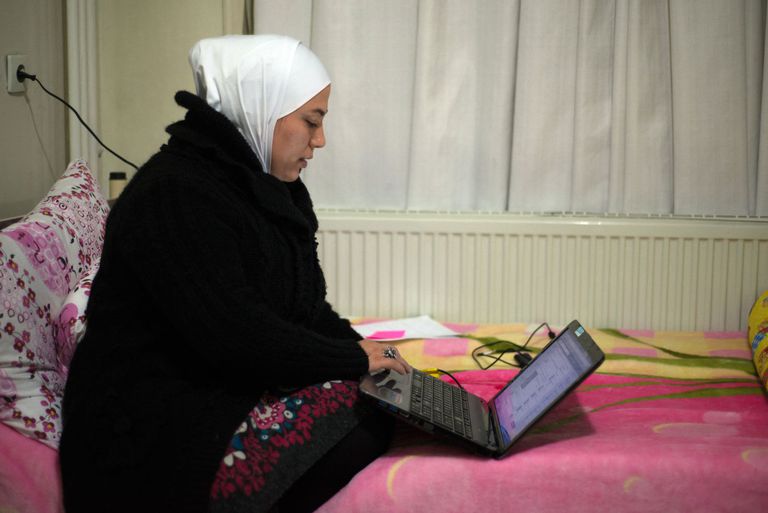Kholoud Waleed* was startled awake by the sound of the front door being kicked in. Suddenly, her family’s apartment in Darayya, a prosperous suburb outside of Damascus, was filled with Syrian government soldiers shouting, “This is the house!” It was the spring of 2012. Waleed’s family—her father, mother, three brothers, and their wives and children—stumbled sleepily from their bedrooms and huddled together in the living room as soldiers rifled through drawers. Waleed was certain they had come for her.
A petite, soft-spoken 29-year-old with an English literature degree, she is a co-founder of the underground newspaper Enab Baladi, and one of only a handful of journalists left in a rapidly disintegrating Syria. The foreign press and aid workers had largely been barred from the country, and those who sneaked back in risked assassination at the hands of Bashar al-Assad loyalists or by ISIS and other radical Islamic gangs filling the vacuum. Amid the anarchy, most international news organizations kept their correspondents on the borders, and real news was hard to get.
In response, Waleed and a circle of 20-odd friends who’d met during the protests had started an underground newspaper to help inform Syrians, and anyone else who wanted to know, about the government’s atrocities. They swore one another to secrecy, wrote under pseudonyms, and filed stories on Facebook (many Syrians now get their news from the social media platform; Enab Baladi’s Facebook page has 333,000 likes), using software to mask their computers’ IP addresses. These days the paper has a website that gets 200,000 hits a month, but in the beginning it had to be hand delivered, at night. Women were couriers, as they were less likely than men to be stopped and searched.
Waleed watched the soldiers disappear down the corridor to her bedroom, where 100 copies of Enab Baladi—which means “grapes of my country,” a reference to the vines that once grew abundantly in the gardens of Darayya—were stuffed under the frame of her twin bed. There was also a flag of the revolution. If the soldiers found this, she was sure they’d execute the family on the spot.
“At least let us go and cover ourselves,” she said as she stood in her pajamas, her dark hair loose around her shoulders. The commander nodded, and she fetched a hijab from her room—and checked to see if her bed had been touched by the soldiers. It had not. Waleed could barely breathe.
* The names of the Enab Baladi staff interviewed or mentioned in this article have been changed or abridged to protect their identities.
Read the article here.


 Christina Asquith
Christina Asquith
